17 Tips For Adjusting To Your New Puppy Without Falling Into An Anxious Loop

Getting a new puppy is one of the most exciting things that can happen to someone, especially if this is your first time. You cannot wait to become a dog owner, and you just want the adoption day to come.
Owning a dog seems to be a dream. You’ll get lots of puppy kisses and cuddles, a pet that will happily welcome you whenever you enter your home, and other movie-like scenes.
However, such high expectations can leave you surprised with some of the hardships that come with dog ownership. Not everything is like on TV, and reality can hit you, causing what is called the ‘puppy blues’.
If this is something you’re dealing with now, or expect to soon, then you’re in the right place!
1. Manage Your Expectations.

As harsh as it might sound – you need to manage your expectations when you plan on getting yourself a new puppy.
To do this, you have to stop daydreaming about how wonderful and amazing dog ownership is. Instead, be more realistic. This doesn’t mean you should be pessimistic or give up on becoming a dog owner. You simply have to change your approach.
Realize that all puppies bite and chew on things that they really shouldn’t put anywhere near their muzzles. At the same time, they likely won’t eat the food you buy them. Why would they when pillows seem much more tasty?
Puppies rarely come potty trained, and accidents can happen more often than you’d like. You’ll be cleaning pee at least a few times a day for the first couple of weeks.
They will also cry and ask for your attention throughout the day, and even more so during the night.
Once you are aware of this, and not just cuddles and face-licking, is what you’ll face, you can be more prepared for all the good and the bad sides of puppy ownership.
2. Limit Where Your Puppy Can Go.
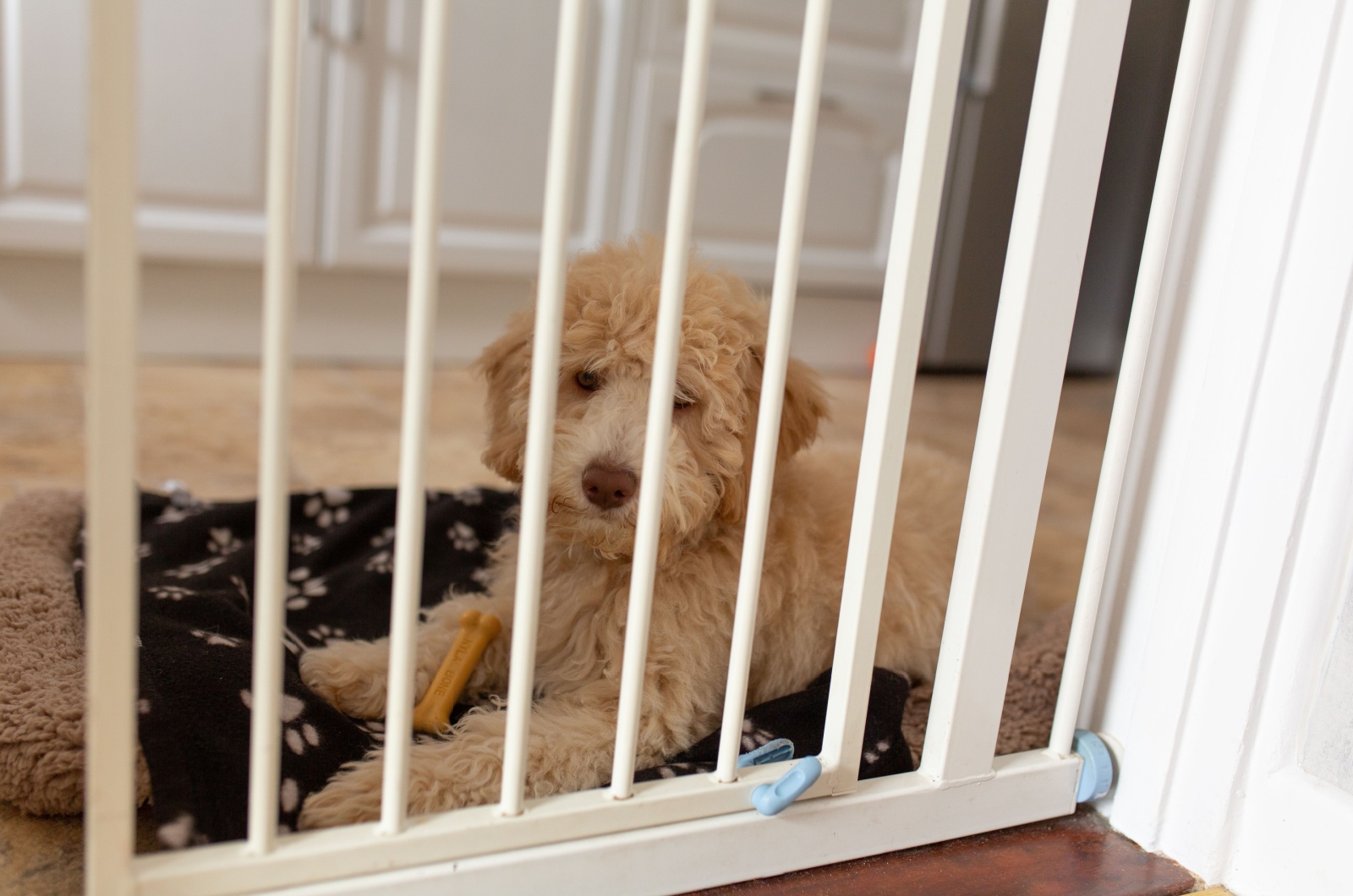
Until your puppy is potty trained and knows some basic commands, limit his roaming area in order to prevent accidents and destructive behavior.
Don’t let your untrained puppy inside the kitchen or in your bedroom. Use puppy gates when necessary to keep him inside his safe space. This will also help you keep an eye on your dog most of the time.
If a puppy doesn’t know commands, he might eat something poisonous or dangerous, such as cables or plastic. Don’t put him in such a situation before you can be certain that he’ll stop when you tell him to!
Not to mention you’ll have a place where you can actually be alone.
3. Share Some Work.

Taking care of a little puppy is a lot of work. Unless you are living alone with your pup, share some responsibility among other family members.
For example, have your partner walk your dog while you are napping, or take shifts on cleaning up pee from the carpet. If you are the sole owner, hire a dog walking service from time to time so you can still have some help.
4. Contact Your Vet.
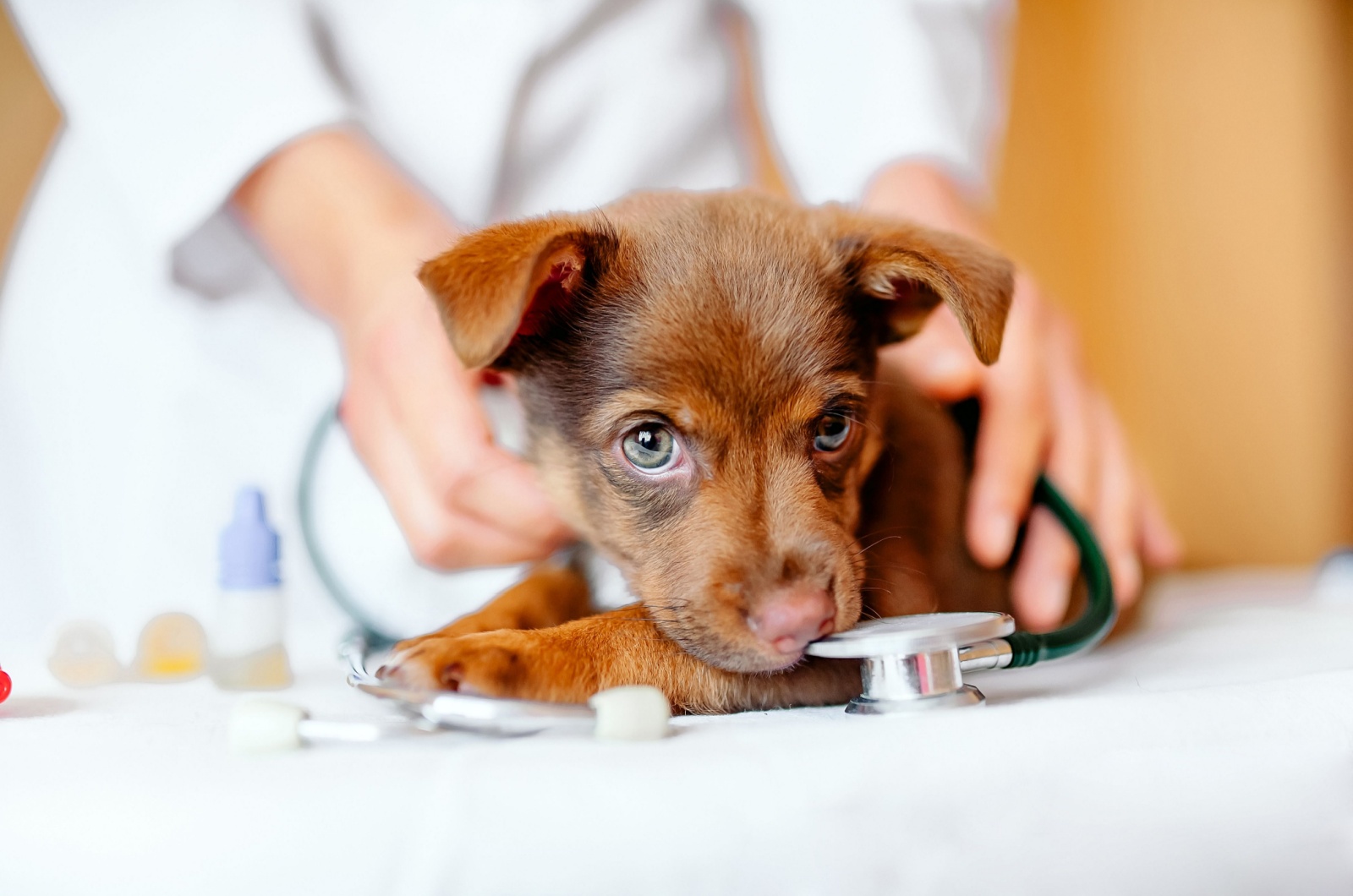
Some puppy owners feel the puppy blues because of constant worry and feeling anxious that something might happen to their new pet. It isn’t easy being responsible for another life, and it can get quite stressful.
Staying in touch with your vet can help you feel calmer. Most veterinarians can give you some advice over the phone, or tell you whether a certain behavior is normal. They can give you all the information you need on how to take care of your pup and keep him healthy.
5. Hire A Professional Dog Trainer.
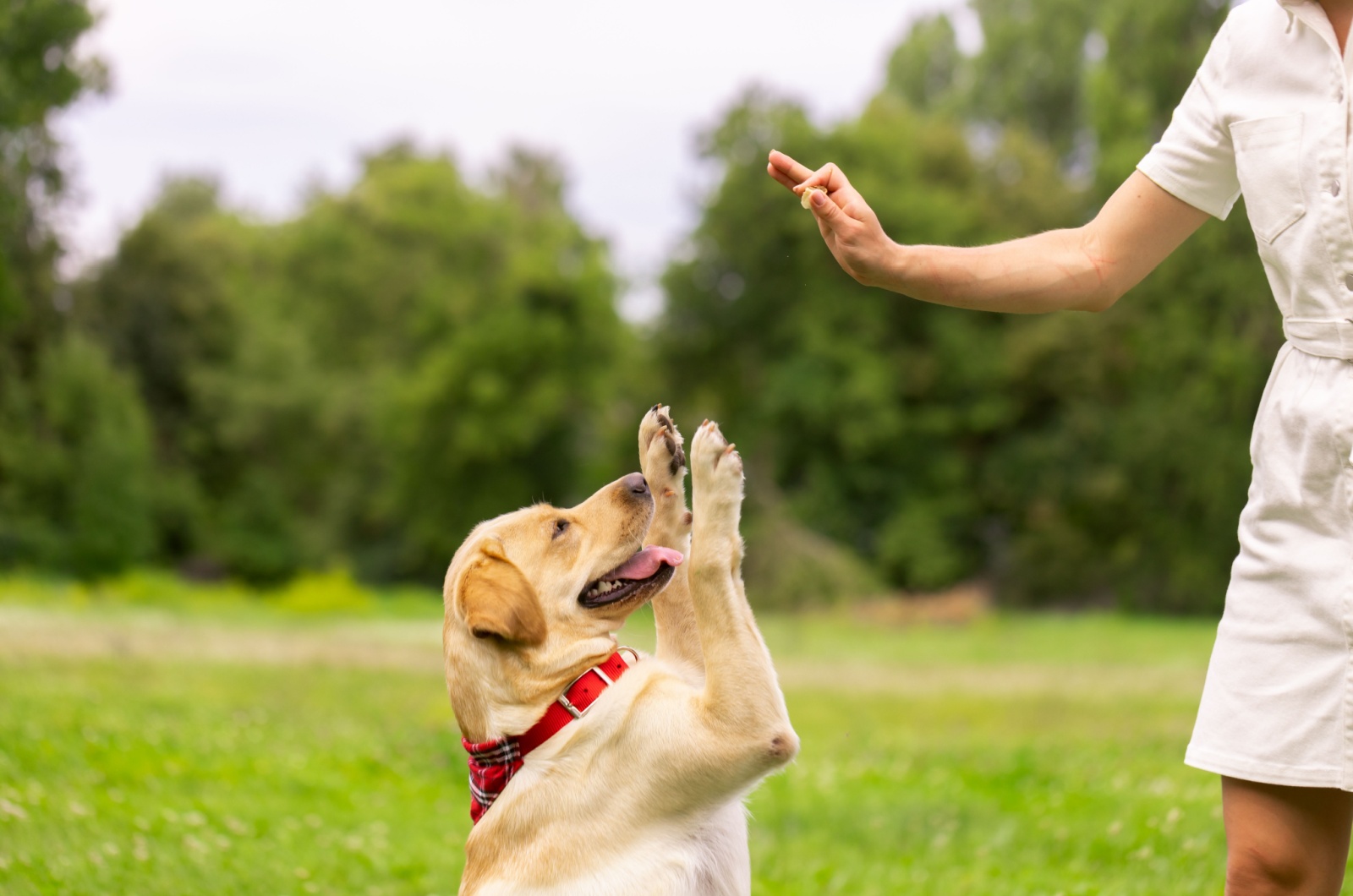
If you’re feeling the puppy blues because you feel like you have a bad puppy or that you’re a bad dog owner, you might want to consider taking your puppy to training classes.
Professional training isn’t just for misbehaving large adult dogs – it is for everyone! From potty and crate training to learning commands, a dog trainer can help you have the best dog possible.
Dog training can also be a good way to take some stress off of your shoulders, as you’ll know that it is one less thing to worry about.
6. Connect With Others.

No matter what you’re going through, you’ll always feel better if you connect with other people, especially if they’ve been through the same thing.
Find a friend who can listen to you without judging you. Join a forum about being a first-time dog owner. Many people have felt the puppy blues, but are ashamed of admitting their struggle.
Another good option might be to document your journey or, if you feel like it, share it on your social media. This will help you reach more people and find the support you may need.
7. Take A Break.

Find a way not to stay with your puppy all the time, every hour of every day. Sometimes, you just need a break, and that’s okay.
Schedule nap times for your puppy. This is also a great way to crate train him. Once you’ve finished with the playtime, place your pup in his crate and let him have a nap for an hour or two.
Ask a family member or a friend to serve as a pet sitter for a few hours so you can have some well-deserved rest. There are even some professional pet sitters and dog daycares out there that you can pay to take care of your pup for a little while, and maybe even help with puppy training.
It’s extremely important that you have some time for yourself, no matter how much you or your puppy might feel like it’s a good idea to be together all the time.
8. Celebrate Milestones.

Don’t focus on the bad things. Think about everything you’ve accomplished so far, and how far you and your four-legged best friend have gone!
Celebrating successes can help you get through the bad days. If you feel like you’re not getting anywhere, it can give you that boost you need to go on.
Brag to people about a new trick your puppy has learned. Post something on your social media. Buy your pup a new toy – there are plenty of affordable, yet cute options on Amazon and similar websites.
9. Research.

From magazines and books to online videos and podcasts, there is plenty of information that is easy to reach on everything dog-related. Excessive barking, potty training, dog behavior – everything is available online.
The more informed you are, the more capable you are of raising your new puppy. It’s easier to raise a healthy dog when you know what you’re doing.
Not to mention that feeling more confident in your knowledge can help you feel calmer and better about having a dog overall. No one likes dealing with things they know nothing about in the first place.
Once you have done your research, you’ll know what your next step should be.
10. Create A Routine.

Puppies love a routine. This is how they feel safe, and they are good at following it.
While puppies can’t tell time, they can learn a pattern. For example, first, they eat, then they have some playtime, then go for a walk and a potty break, then sleep. This is something they understand, and you should use that to your advantage.
Make a schedule for your puppy that will include two nap times. Plan them at a time that is good for you to do some errands or get some rest. Keep in mind that a pup should get one nap time in the morning and another one in the afternoon, and both should last for about two hours.
These nap times should follow some feeding time, exercise, and walks outside, so the puppy will feel tired enough to want to sleep.
11. Pat Yourself On The Back.

Let’s face it – no one is perfect. As long as your puppy is safe, getting his food and water, necessary veterinary care, and some attention, you’re doing just fine.
It can be extremely difficult to try to make everything perfect. Give yourself grace whenever you can. Everyone has good and bad days – the only difference is that people don’t talk about the bads.
Even if things aren’t going according to your plan, don’t give up on yourself. Take a deep breath and tell yourself that there are still many ways you can make everything right. You’re doing great.
12. Remind Yourself That It’ll Get Better.

Things can get tough from time to time. When they do, you need to tell yourself that it’s only temporary. Everything will pass and get to its place.
Your dog will eventually be potty trained. He will sleep through the night, and his temperament will get better. He’ll stop chewing on things.
The best and the worst part about having a puppy is that he will grow up really fast. Everything that you’re going through will eventually end and things will become alright.
13. Talk To A Professional.

Mental health is extremely important. If you are having a difficult time dealing with the puppy blues, or if your feeling of resentment is lasting too long, it is okay to seek professional help.
A professional therapist will know how to approach the problem, and they’ll do so without judging you. Don’t hesitate to give them a call if you feel like things are getting out of hand.
14. Give Yourself Time To Adjust
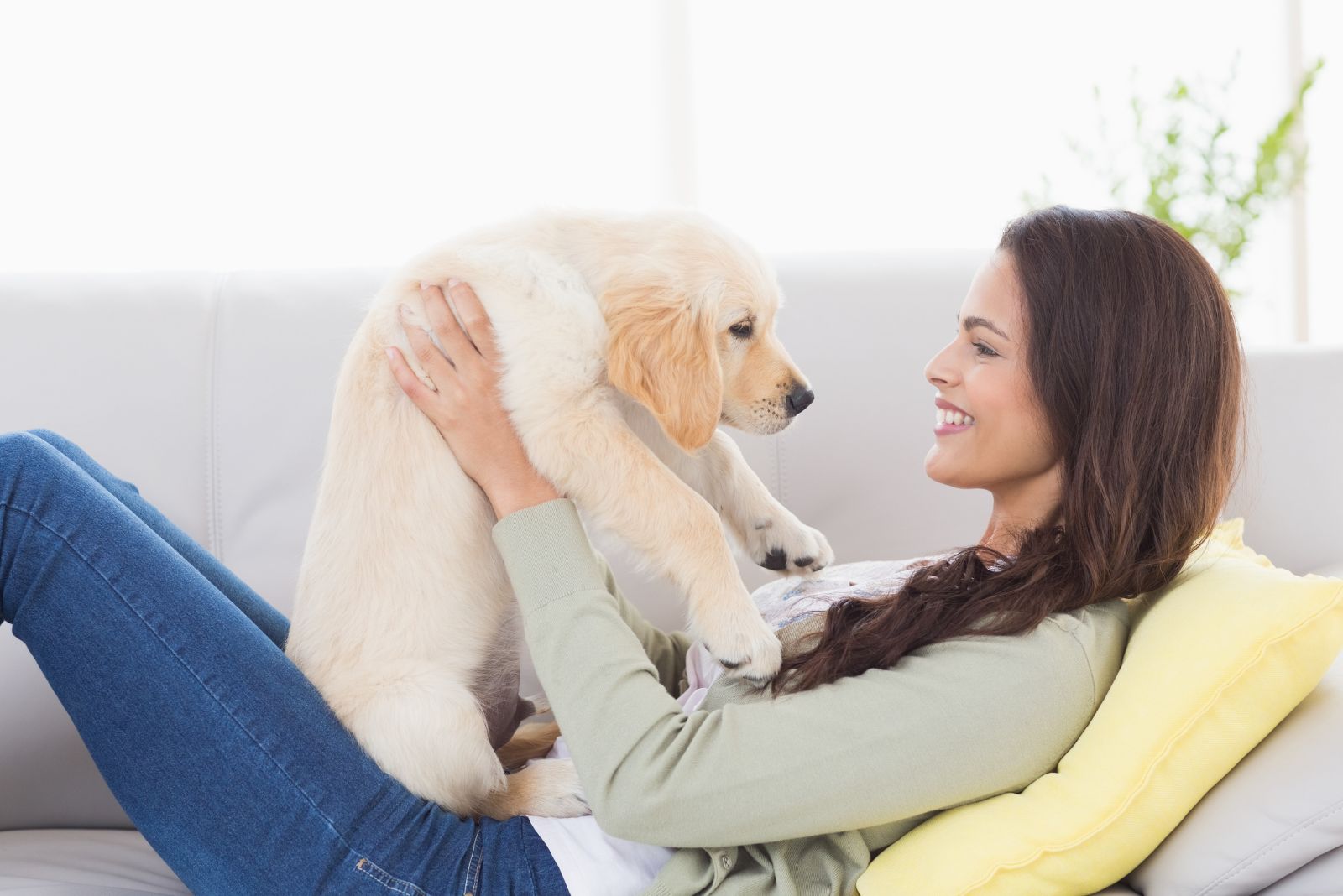
Bringing a new puppy into your life is an exciting, yet overwhelming experience. It’s a major transition for both you and your little furry companion, and it’s perfectly normal to feel a mix of emotions during this time.
As much as you might have dreamed about this day, it’s important to recognize that adjusting to life with a puppy takes time—for both of you. Your puppy is learning about their new world, and you are learning how to best care for and understand them.
Their needs might feel constant, their energy overwhelming at times, and their behavior unpredictable, especially in those early weeks. But remember, these moments are just the beginning of a beautiful journey.
The bond you’ll build with your puppy will evolve, and with patience, both of you will settle into a rhythm. Be kind to yourself during this time of transition. You don’t have to have everything figured out right away, and it’s okay to make mistakes along the way.
Give yourself permission to feel a little unsure and to adjust at your own pace. The love and companionship you’re about to experience will grow stronger with each day, but it’s a process. Trust that, in time, you’ll find your way together.
15. Focus On Your Bond With Your Puppy

One of the most beautiful aspects of puppyhood is the opportunity to develop a deep and lasting bond with your new friend. If you’re feeling down or disconnected, one of the best ways to lift your spirits is to focus on strengthening that connection.
Spend quality time with your puppy – whether it’s through gentle play, training sessions, or simply cuddling together on the couch.
Every moment you share helps build trust and affection between the two of you. It’s these little things – like watching them excitedly chase a ball or curl up in your lap for a nap – that remind you of the pure joy they bring into your life.
When you take the time to bond, you’ll begin to notice how your puppy’s unique personality shines through, and with that, the joy and excitement you first felt when bringing them home will begin to return.
Don’t rush the process; sometimes it’s the quiet moments, like sharing a tender look or soothing them during a thunderstorm, that solidify the deepest connections.
As you both grow together, your bond will become an unspoken language, one that transcends the challenging days and fills your heart with warmth. Your puppy needs you, and you need them – what you’re building together is more than just a relationship; it’s a lifelong partnership.
16. Create A Cozy, Designated Space
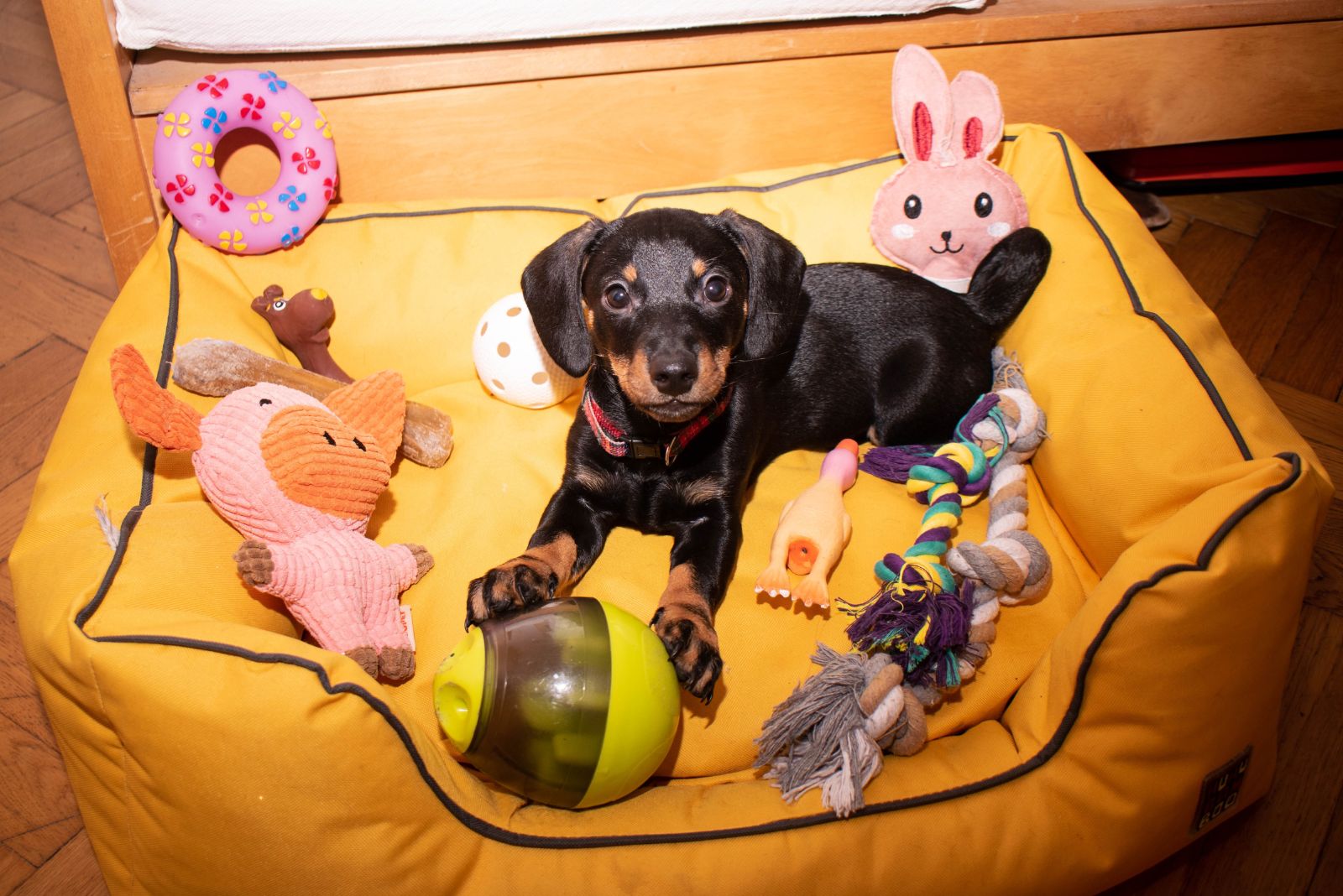
When you bring a new puppy into your home, having a dedicated area just for them can work wonders for their comfort and adjustment. Imagine how overwhelming it must be to suddenly move from a litter of siblings to a completely unfamiliar environment.
By setting up a cozy, designated space—such as a playpen, a crate, or a specific corner of a room—your puppy gains a sense of security and familiarity. It becomes their little retreat where they can rest, feel safe, and gradually adjust to their new surroundings. To make the space truly inviting, include a soft bed or blanket that smells comforting, a few toys for entertainment, and access to fresh water.
Over time, this spot becomes their sanctuary, and as they learn that it’s their special area, they’ll begin to seek it out whenever they need a break.
For you as the owner, it’s also a practical solution: knowing they have a safe place to relax means you can step away without worrying about them wandering or getting into trouble. In short, a dedicated puppy space creates a foundation of comfort and security for both your pet and yourself.
17. Learn Your Puppy’s Signals
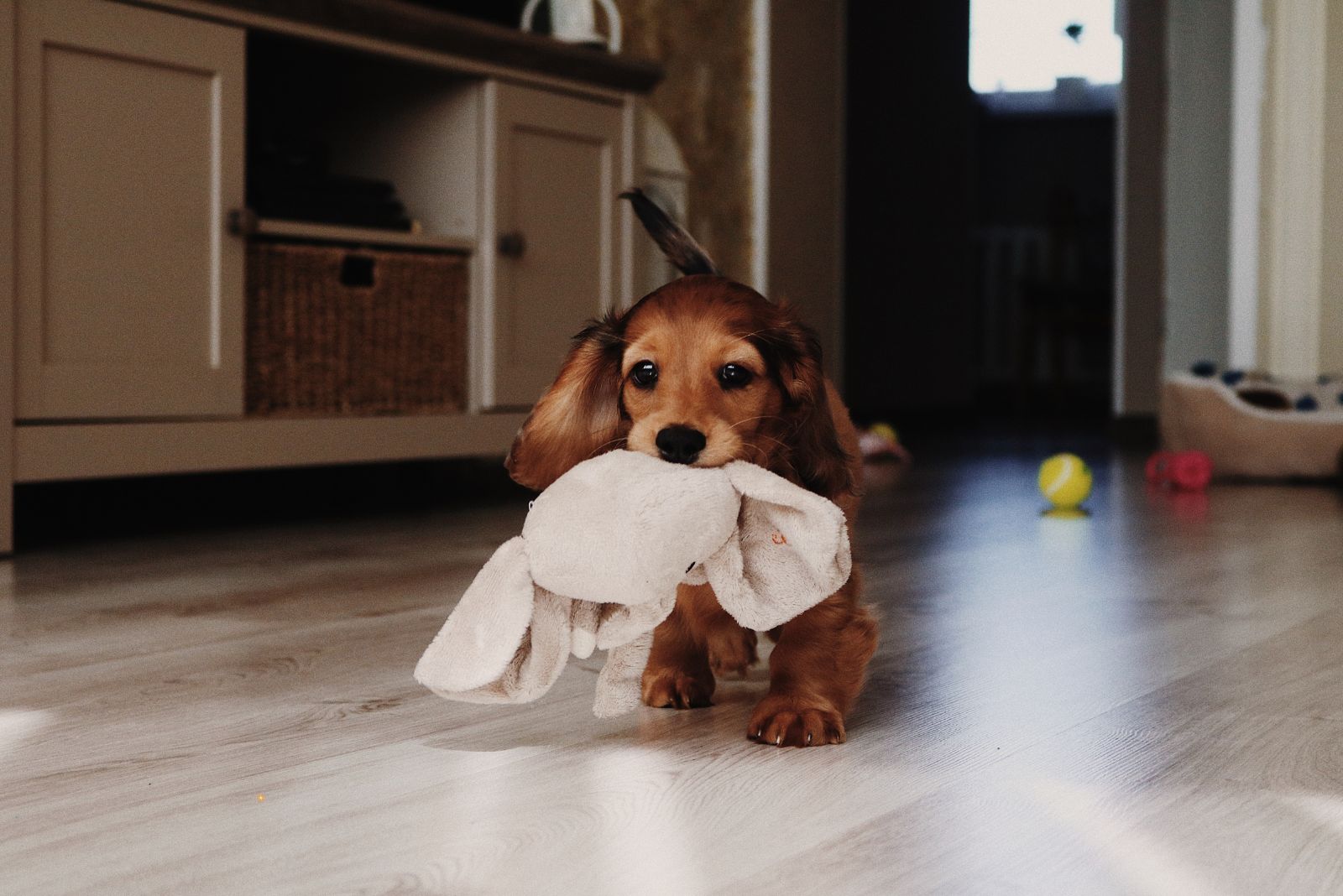
Adjusting to life with a new puppy is easier when you take the time to understand their unique communication style. Puppies rely on subtle signals to express their needs—whether they’re hungry, need to go potty, or simply want a nap.
By observing their behavior closely, you’ll start to notice patterns. For instance, many puppies will sniff the ground or circle when they need to relieve themselves. They may nuzzle you, paw at their food bowl, or even whimper when they’re hungry.
Over time, you’ll recognize these cues and be able to respond promptly, which reduces both their stress and yours. When you meet their needs quickly and consistently, you also build trust and a stronger bond. Plus, understanding their signals early on can prevent common mishaps, like accidents in the house or unnecessary barking.
The key is to pay attention, be patient, and remember that every puppy is different. Learning what your puppy is trying to tell you will not only help you meet their needs more effectively, but it will also lead to a more harmonious relationship.






